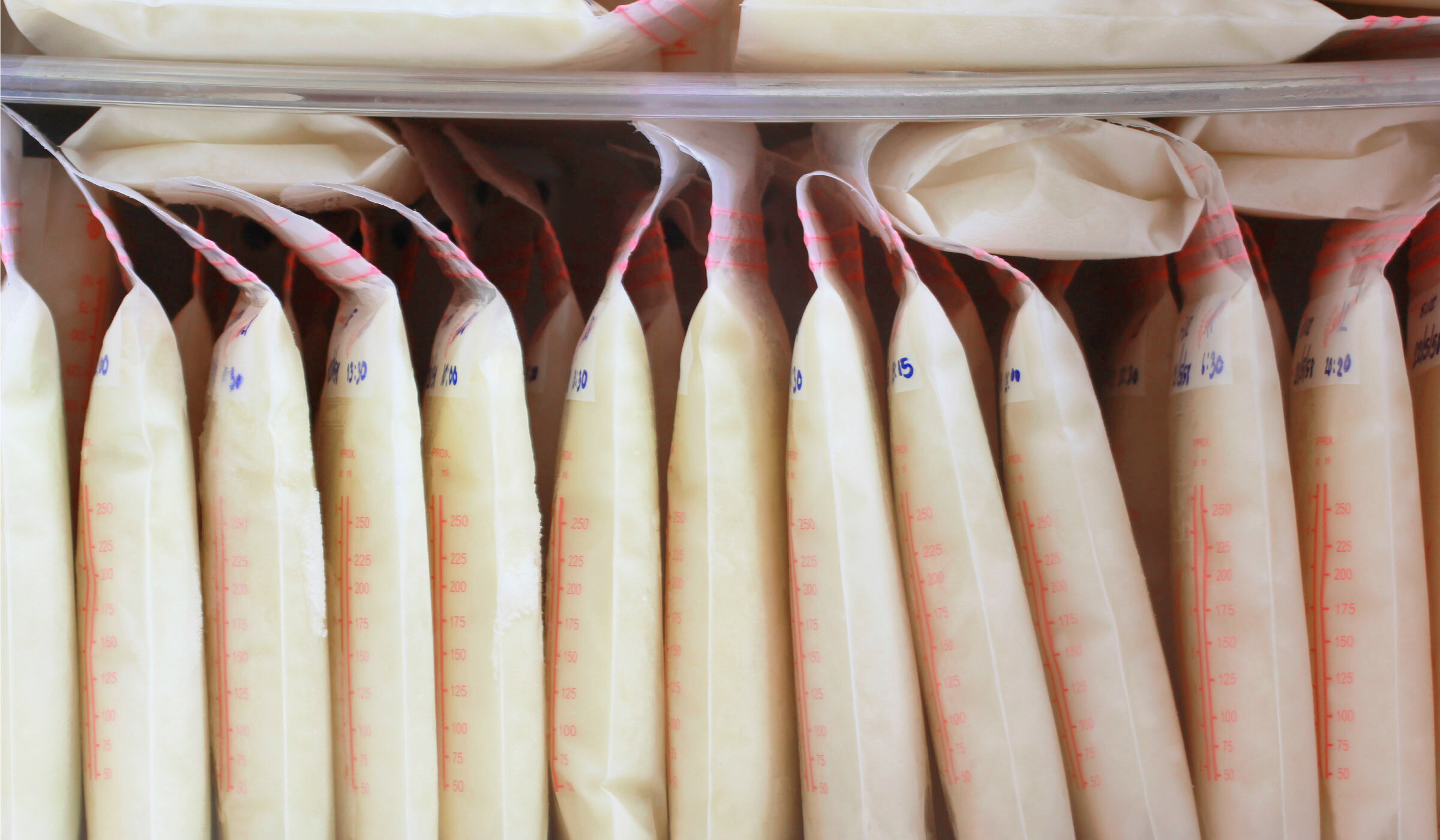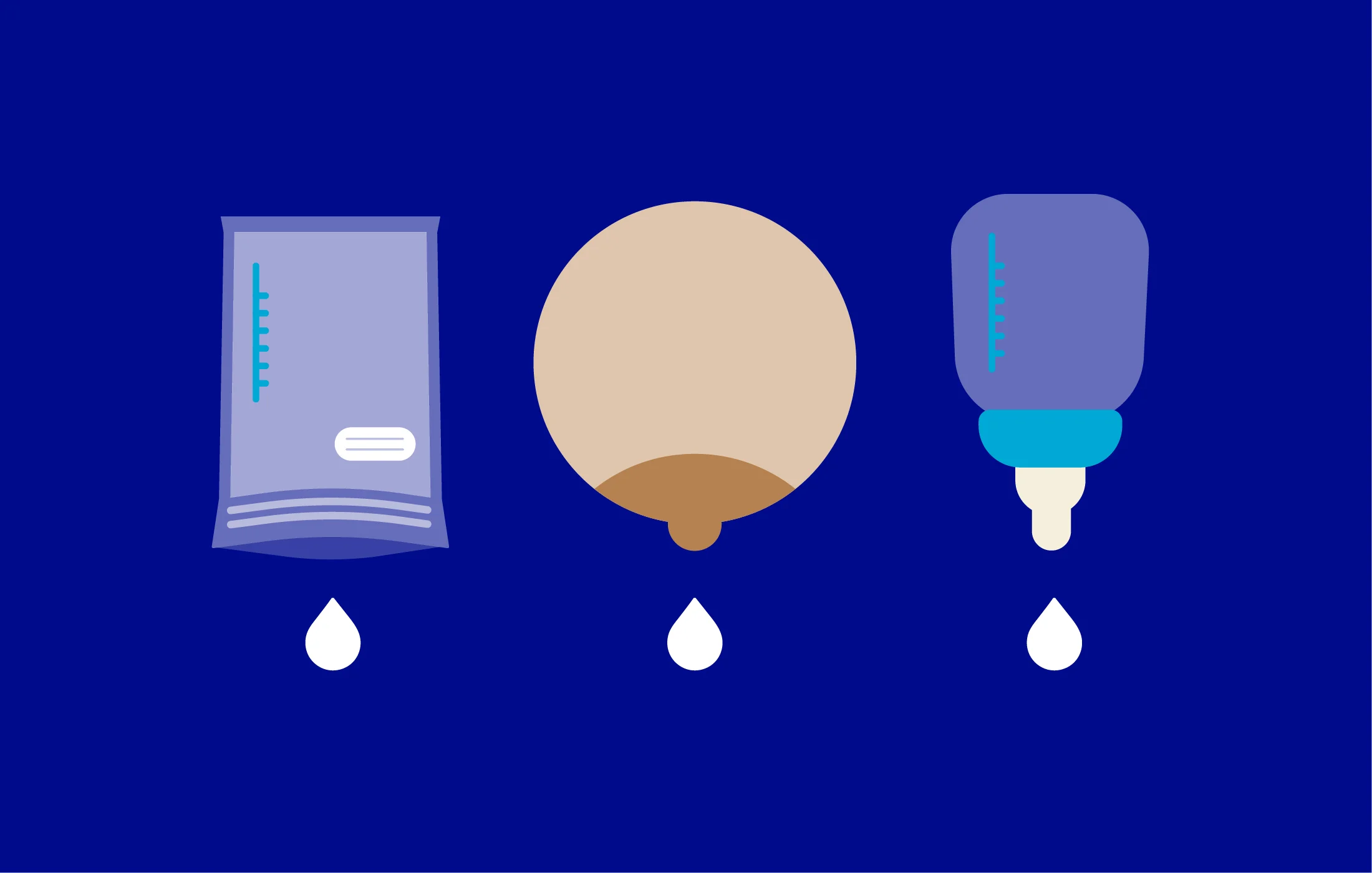Gloriously Nerdy Facts About Your Milk Supply

Making breast milk feels like magic. Stop to think about it, and it kind of is. But there’s also a lot of science behind how milk is made, and what helps or hurts your flow. Here are five facts that will delight your inner nerd—and perhaps help you breastfeed more successfully.
It all starts with Boss Baby
When a baby begins to nurse, the sucking action prompts your body to release prolactin, a hormone involved in milk production, and oxytocin, a hormone that causes muscles in the breast to contract and push out the milk. (Oxytocin, a.k.a., “the love hormone,” also plays a powerful role in creating strong social bonds—including maternal feelings!—and seems to help forge trust and mediate fear.)
When milk starts flowing, that’s letdown
Well, the release of milk from the breast is called letdown but, most of the time, the action is actually the opposite of a bummer. Most women experience letdown as a sweet little victory: baby settles into a satisfying nursing session, and mom experiences a physical sensation usually perceived as pleasant relief. Letdown can happen in minutes or seconds and varies from feeding to feeding, pump to pump, and mom to mom.
Just thinking about your baby can lead to letdown
Sometimes, the magic milk systems can get a little oversensitive and the letdown reflex kicks in when looking at, hearing, or even just thinking about your baby. While this may not be super helpful when you’re in a meeting or on a plane, you can use this phenomenon to your advantage when you’re pumping (tip: look at a sweet photo of your babe when you’re pumping).
Stressful situations can slow your flow
Stress—because you’re feeling rushed or judged, or stuck in a gross and dirty bathroom, for example—can negatively impact letdown, slow your flow, and make nursing or pumping more difficult. That’s why it’s important to find a relaxing place to nurse or pump. Download the Mamava app to find thousands of private and dignified places to nurse or pump.
Distracted babies can take a toll on your milk supply
As older babies become more aware of their surroundings, they often get distracted easily. This can lead to quick head turns—with your nip in baby’s mouth grip (ouch!) It can also prevent you from fully emptying your breasts, which can take a toll on milk supply. Retreating to a quiet spot—or creating one with a nursing cover—may help baby focus. Check our more nip tips here!
Mamava designs solutions to empower breastfeeding and pumping parents on the go, like our freestanding lactation pods, Mamava’s lactation space locator app, and other helpful resources.
More breastfeeding resources
Returning to work? Here’s a primer to get the pump party started.
A go-to-guide for what to eat when you’re breastfeeding—and also taking care of a baby.
These situations may require professional breastfeeding support.
The info you need to store, freeze, and thaw your liquid gold with confidence.
Common pains-in-the-boobs can get you down and challenge your breastfeeding goals.
Don’t panic. Do continue breastfeeding.
Your go-to guide to weaning when you’re ready.
How to breastfeed with confidence, no matter what sticky situation you find yourself in.
The eight best breastfeeding positions (according to moms).
Breastfeeding moms are still nourishing for two! Expert advice on the foods that help new moms thrive.
Rumor, fact, or folklore? Test your breastfeeding know-how with this quiz.
A brief history of human infant feeding—breast, bottles, and formula—through the ages.
Every breastfeeding mom on the go needs a breast pump. Here’s how to get one.
What do new moms truly desire from their partners? We asked, you spoke.
Stop Googling! Here are three breastfeeding myths we can bust right now.
Five practices that help moms with preterm babies breastfeed.
A breastfeeding mom’s guide to fasting for religious observance.
Four thousands moms weigh in on how they feed their baby.
Seventeen breastfeeding moms share their hard-earned wisdom and messages of support for new moms.
A breastfeeding mom’s guide to baseball.
Sex when you’re a breastfeeding mom? It’s complicated.
Friends can help you transition to motherhood with more confidence, support, and joy.
Five facts about breast milk to delight your inner nerd (and help you breastfeed).
Mamava’s boob whisperer and certified lactation consultant can help when the flowing gets tough.
A breastfeeding mom’s guide to football.
Breastfeeding mamas, rejoice! It’s time to indulge.
Exercise tips to help new moms get moving again.
Kate Rope’s book helps new moms transition into motherhood.
A book about being a mom. And a woman. And a human.
Breastfeeding and basketball have more in common than you think.
































